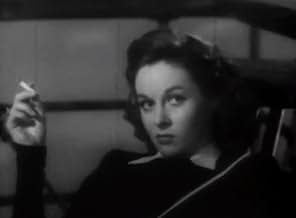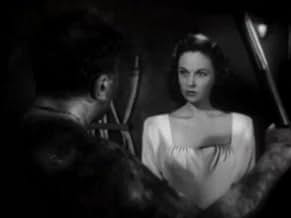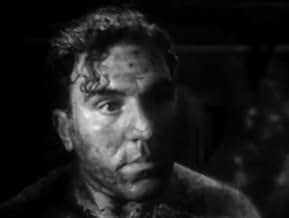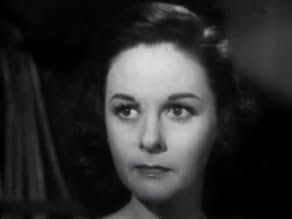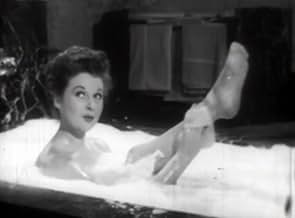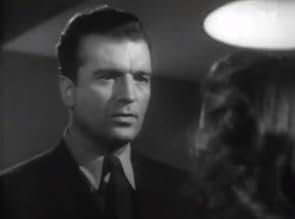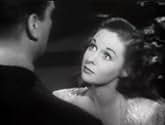Füge eine Handlung in deiner Sprache hinzuDuring the 1940s, social class conflict is depicted when a spoiled socialite, traveling on a freighter, calls the ship's head stoker a hairy ape, provoking him into stalking the rich woman o... Alles lesenDuring the 1940s, social class conflict is depicted when a spoiled socialite, traveling on a freighter, calls the ship's head stoker a hairy ape, provoking him into stalking the rich woman once ashore in New York.During the 1940s, social class conflict is depicted when a spoiled socialite, traveling on a freighter, calls the ship's head stoker a hairy ape, provoking him into stalking the rich woman once ashore in New York.
- Regie
- Drehbuch
- Hauptbesetzung
- Für 1 Oscar nominiert
- 1 Nominierung insgesamt
- Aldo the Baron
- (Nicht genannt)
- Third Engineer
- (Nicht genannt)
- Minor Role
- (Nicht genannt)
- Refugee Violinist
- (Nicht genannt)
- Bar Patron-Brawler
- (Nicht genannt)
- Nightclub Patron
- (Nicht genannt)
- Goliath the Gorilla
- (Nicht genannt)
- Saloon Brawler
- (Nicht genannt)
- Minor Role
- (Nicht genannt)
Empfohlene Bewertungen
My glee at finally having this movie, was short lived when I noticed that, although the film had been restored, its technical quality looks as if it hadn't been--and needed to be. It's hard to imagine what this film looked like BEFORE it was restored!!
In addition, there is very little similarity between O'Neill's play and this movie--either in plot or dialogue. Any similarity between the two is purely superficial, and the movie leaves out the GUTS of O'Neill's play altogether. Perhaps that's why the movie made such little sense and hardly held together at all. Although both the PLAY and the MOVIE stress the way that the classes view each other, O'Neill's PLAY (written in 1922) has a healthy dose of anti-capitalism and a bar speech suggesting Marxism, even if only by a comical drunk. The 1944 movie seems to have expunged any hint of these references.
Near the end of the PLAY, fellow workers tell 'Yank' to get even with Mildred's wealthy father by joining the Wobblies or the Industrial Workers of the World (IWW). No one mentions this to 'Hank,' (William Bendix): unlike in the play, Hank never tries to join the local I.W.W. (Even the protagonist's name is changed from 'Yank' in the play to 'Hank' in the MOVIE. The name 'Hank' could be short for Harry, suggesting 'Hairy' in the name of the play.)
In the PLAY, Mildred willfully does volunteer social work in Manhattan's Lower East Side and is ridiculed by her aunt for 'slumming.' In the MOVIE, Mildred (Susan Hayward), pretends to do social work--in Lisbon, while having fun instead. Here, her longtime friend and companion, Helen (Dorothy Comingore), is the real do good-er who chides Mildred for her not doing the work assigned to her in Lisbon. In the PLAY, Mildred's critic is her aunt, who says that her good works just make the lower class feel worse. Again, there are complete changes in characters and motives from the aunt in the PLAY to the friend in the MOVIE!!
In the PLAY, Mildred is NOT the vixen-like villain that she is in the MOVIE. True, Hank is arrested and jailed for a disturbance outside of Mildred's 5th Avenue apartment, but not for the same reasons as in the movie. After being jailed, he is put in cell alone, not with other prisoners who talk to him about labor unions (as in the PLAY).
In the MOVIE, after he is released from jail, he visits the gorilla cage, notices that the gorilla likes to smash things, and then sneaks into Mildred's apartment to 'smash her.' In the MOVIE, we don't know how he gets any revelation by 'seeing how the other half lives' and deciding that their lives are just like his. That is, if he doesn't 'smash her,' as his voice-over tells him to do, we don't know why. Most importantly, the final scene of the PLAY is at the gorilla's cage of the carnival. The MOVIE just kind of throws that scene in earlier--BEFORE he sneaks into Mildred's apartment to 'smash her.'
While there ARE SOME common scenes between the play and the movie, the MOVIE SO mixes up the intent of the PLAY that I am not sure why O'Neill--who must have had to agree with some of the movie content--even agreed to let the movie be shown as a representation of the PLAY.
I caught this film on channel 13 wee hours on a Sunday morning.
But if you expect to see much of O'Neil here you will be disappointed. In fact you'll be down right discouraged when you see that O'Neil's play has been turned into a cut rate version of Of Mice And Men. Maybe John Steinbeck should have sued.
Knowing that Wolheim originated the role of the ship's stoker I can see why Bendix was cast. He certainly played a lot of blue collar types in his career. And in a straight dramatic no deviation production of The Hairy Ape he might very well have given an outstanding performance. He's not bad in this film.
All the social commentary of what O'Neil was trying to say about the failures of capitalism and the inability of socialism to provide a meaningful alternative are missing. The film is also updated to provide references to World War II, the ship is part of a convoy. What you're left with is the fact that some are born richer and better looking than others and never the twain shall mix.
Bendix as a stoker is a man happy with his lot and in truth it's the guys who are shoveling coal into the ship's furnace that do make her go, up on top the rest just steer. And it's a dirty job, but someone has to do it.
Susan Hayward plays a rich society bitch who is teasing ship's officer John Loder for a little amusement even though her best friend and traveling companion Dorothy Comingore is in love with him. One day she wanders into the engine room and is so repelled by the dirty, sweaty, hairy Bendix that she tags on him the title of the film.
It bothers Bendix that this is how the world might see him even coming from this shallow society queen. Like Lennie from Of Mice And Men he's both repellent and pitiable. Unlike him he very well knows his own strength.
For what we get here both Bendix and Hayward deliver some fine performances. But if you want to see fine film productions of Eugene O'Neil I would check out The Iceman Cometh and Long Day's Journey Into Night.
When the film begins, Hank (William Bendix) is a merchant sailor who acts an awful lot like Popeye. He's big on fighting and drinking and working--and not much else. However, when a dreadfully spoiled and awful rich woman comes aboard the ship where he serves, she sees his ugly mug and she calls him a 'hairy ape'. This obnoxious comment, surprisingly, causes an existential crisis in Hank and he spends the rest of the film trying to figure out who he is...and whether or not he really is just a hairy ape.
As I mentioned above, the ending was changed and so all the shock and sting of the original play is gone. This makes the story quite tepid and along with surviving copies being lousy, this makes the film one that you could just as soon skip. Not terrible but I sure want to see a version that sticks closer to the original.
By the way, at the beginning of the film, they are in Portugal. So why are so many folks actually speaking Spanish?!
Wusstest du schon
- WissenswertesThe failure of the original copyright holder to renew the film's copyright resulted in it falling into public domain, meaning that virtually anyone could duplicate and sell a VHS/DVD copy of the film. Therefore, many of the versions of this film available on the market are either severely (and usually badly) edited and/or of extremely poor quality, having been duped from second- or third-generation (or more) copies of the film.
- Zitate
Hank Smith: Dames, huh? That's a lot of tripe. They'll double cross you for a nickel or even nothing. Treat 'em rough - that's me, the whole bunch of 'em. They don't belong. They don't amount to nothing. Who makes the old tub go? It's us guys. Me! Me! I make her go.
Top-Auswahl
Details
- Laufzeit1 Stunde 32 Minuten
- Farbe
- Seitenverhältnis
- 1.37 : 1
Zu dieser Seite beitragen


